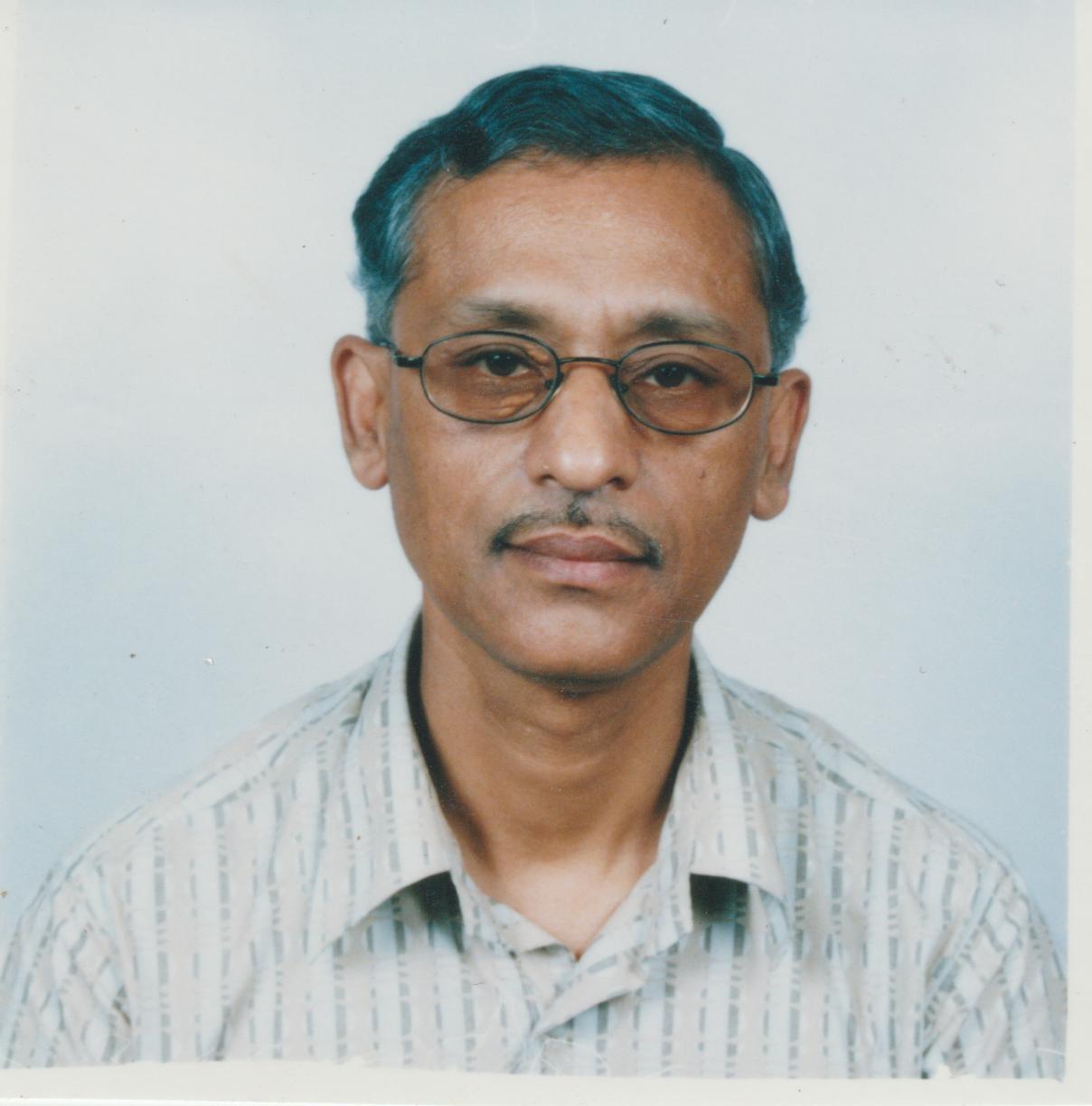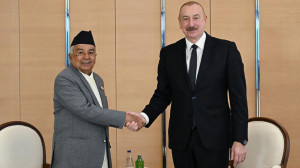Columns
Congress at a crossroads
The oldest political organisation in the country is frantically searching for its footing.
P Kharel
Nepali Congress leader Ram Chandra Paudel recently announced that the party would move forward with 'vision and mission', which unwittingly was a public admission that the oldest existing political organisation in the country lacks both. The Congress presently is frantically searching for its footing in the political ring. The daunting pursuit demands a united stance by the top-notch leaders in the organisational hierarchy, where the culture of sticking to the script issued by the big bosses is parroted with blind loyalty.
Locked in a stiff tug-of-war among faction leaders, the party boasting of having led all past democratic movements is stunned into inertia, infused by the drubbing suffered in the various elections. Prime Minister KP Oli savours his Nepal Communist Party’s thumping success in the electoral contests when the Congress was in government. Amid this is emerging a development hinting at attempts at rolling back what was dumped unceremoniously.
Like it or not, the issue of Nepal reverting to being declared a 'Hindu state' is acquiring strength since the 2018 installation of the communist government at the helm of state affairs. Ironically, the topic began gathering ground after the promulgation of the constitution. Many leaders in most parties are convinced that the vacuum left by the absence of the institution of monarchy in a ramrod manner has begun inviting repercussions.
Likely turnaround
Drawing from the statements of various Congress leaders and analysts recognised by major media outlets, there is an inkling of the Hindu state issue gathering pace in the coming days. Shekhar Koirala makes no bones about the Hindu state issue figuring vigorously in the party’s 14th convention. General Secretary Shashanka Koirala’s statement of support comes as the tipping point. In fact, the Koirala clan, including Sujata, Prakash and Manisha, are said to be pushing for this agenda from behind the scenes. Krishna Prasad Sitaula and Bimalendra Nidhi might fight tooth and nail against it, though. Ram Chandra Paudel, too, is learnt to have a serious rethink over the issue. Then the perennial 'youth leader' Gagan Thapa sooner than later might find himself mellowed, given the growing tide in favour of the call for reversing the secular clause in the new constitution.
Fissures of a factional nature have debilitating effects. Congress has the advantage of a creditable history, but that alone does not guarantee unremitting success forever. It can pull off a comeback, provided it steers the course in earnest. Failure to decipher the obvious renders an organisation obsolete.
BP Koirala propped up Tulsi Giri and Bishwabandhu Thapa as a counterweight to Subarna Shumsher Rana and Surya Prasad Upadhyay. Giri was confident, dynamic and decisive just as Thapa was an organisational man. Both Giri and Thapa were good orators, who floored opponents with the data and word power they possessed in abundance. The duo ultimately chose to desert the sinking ship that the Congress had become. Suave and soft-spoken, Subarna Shumsher Rana attracted workers, including those dissatisfied with Koirala. Upadhyay, an intellectual who read voraciously much to Koirala’s complex, compensated for his lack of skill in organisational work by brokering accommodation and understanding with the party elite.
Nepali Congress is bogged down by the fog of faction fighting and the never-ending clash between its senior members and the relatively younger ones, the former claiming experience and the latter seeking opportunities to prove their mettle after acting as foot soldiers for the seniors all these years. A party can prevent being reduced to a spent force if it replaces fossilised leadership by those perceptibly better.
As things remain, Congress’s past stands remarkable whereas its present is toxic. It risks sinking into oblivion or being permanently maimed and marginalised if it delays a cleanup and tone-up campaign for infusing fresh ideas and dynamism. Complacency, greed for power and the spoils of office soaked the party neck-deep in stagnation and disrepute. Generational divide stunts parties, stills innovative ideas and discourages dynamism. Infusion of young and talented blood could provide a shot in the arm of this ailing organisation.
Shashanka Koirala eyes the party presidentship; Shekhar Koirala is ambitious but realistic to accept whatever major role is extracted, and Sujata Koirala seems reconciled to playing a role for visibility so as to be seen and heard. She has an enormous purse stitched over 25 years of proximity to her powerful father Girija Prasad Koirala, who became prime minister five times. Deuba, with an ambitious spouse, operating from a mansion in Budhanilkantha, digs his heels deep to the detriment of an already demoralised organisation. There is clearly a pressing need for someone dynamic and decisive—and not someone tried, tested and proven to be a failure repeatedly—to direct the party tapping its full potential as a major force to reckon with.
Confront reality
Nepali Congress is divided into factions such as the pro-Koirala Congress, Royal Congress, leftist Congress, pro-Indian Congress, pro-Chinese Congress, pro-US Congress, pro-EU Congress, pro-nation Congress among other facets. Youth leaders hardly dared to defy Girija Prasad Koirala, but they have begun disagreeing with Sher Bahadur Deuba. Deuba, however, is still hopeful of returning to the prime minister’s official residence at Baluwatar for the fifth time. Questioning the leadership is the first sign of attempts at putting the seniors on their toes. Without innovative ideas, however, the youth will be dismissed as a nuisance by those benefitting from the status quo.
The Congress' current sorry state of flux and exaggeration is an outcome of years of apathy. All elected representatives should be assigned specific roles to engage them the year-round. How the leaders put the pieces together and chart out the course ahead will determine their future prospects and public credibility.
After taking full stock of the prevailing political mess in the country, Congress should not hesitate to confront its lapses and honestly atone for them. This might mean joining hands with other forces that share common points of agreement on agendas for restoring order and hope in the people. It will draw back Nepali Congress’ traditional voters—plus more.
Kharel is is a former editor of The Rising Nepal.




 20.22°C Kathmandu
20.22°C Kathmandu















